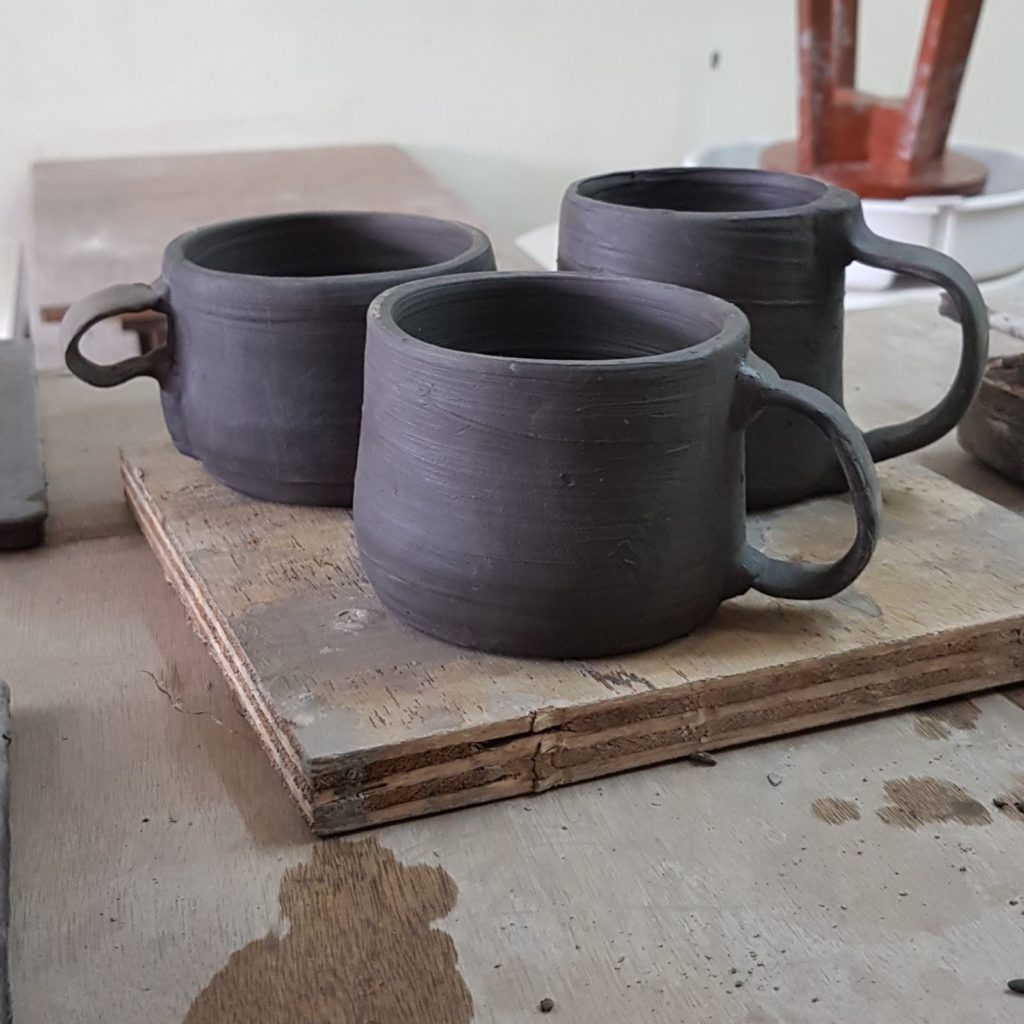
As the pottery wheel whirled around, I confidently placed my wet hands on the clay and started molding it upwards into a skinny cone and down into a dome.
That was me last weekend, a far cry from when I faced my first mound of clay, six classes ago.
That first day, it seemed I could do nothing right.
My teacher wrapped his hands around mine showing me the proper motions to mold the clay. When he removed his own hands, my fingers had no muscle memory and just did what they wanted. I forced the clay into submission when it didn’t want to make the required shapes. I moved too quickly through the crucial first part which was all about centering, or making sure our material was steadily in the middle of the wheel. Instead of making a mug, I accidentally made a bowl.
Have patience. All things are difficult before they become easy.—Saadi
This weekend, I will be graduating after seven sessions. Here’s what I leaned from pottery school:
1. Go slow.
Good things emerge not by force or by rushing. It comes with practice—coning and doming over and over to make sure the clay is centered—patience and intentional actions. Every time I would rush to get results, my fingers would make unwanted dents or the walls of my piece would be too thin or too thick. The worst case, I would need to put the aside the mound of clay I was working because it was too wet and unusable and start again with a new ball.
I learned to breathe, relax and move slowly, with patience and intention.
In pottery as in life.
2. Honor your tools.
My teacher told us, “Allow the tools to do the work.”
Pottery reminded me that I am not the master of the clay or the wheel. In fact, I was a tool too, just like them. We all have a role to play in creating something beautiful. I needed to allow each element to do what they’re supposed to instead of aggressively forcing them to submit to my will.
In pottery as in life.
3. It’s important to be centered and grounded.
Sixty percent of the work in pottery is done if you center your clay properly. As you start forming, you are reminded to keep your arms anchored on your knees, the sides of your body or the basin surrounding the wheel. Centering and grounding will elevate your material from a mound of dirt into something useful, beautiful and extraordinary.
In pottery as in life.
4. Be humble.
The process of pottery (or learning anything new) is humbling. You have to do things over and over to get any results, much less what you want. In one class, you can confidently create bowl after bowl. In the next class, you will find yourself unable to make decisions and thus not make anything. Your ego will be crushed over and over.
In these situations, it is best to have a beginner’s mind. To look at the process with curiosity. To laugh at your mistakes. To take this lightly (it is only a mug or bowl or plate, after all). To be okay with starting over and over. To leave your ego at the door.
In pottery as in life.
5. Perfection is overrated.
There’s something primal about working with clay, of getting your hands wet and plunging them into a blob of dirt, of being covered with mud, of scrubbing your fingernails clean after class.
Your leave fingerprints on your work.
The shape of your bowl isn’t quite the way you want it.
The mug handles are a little wonky.
Your plate is, as your teacher politely calls it, “very sturdy” (i.e. too thick).
You leave the mistakes you made because fixing them might make things worse.
The primal nature of pottery means that it is far from perfect. It is real.
There is charm and soul in allowing your humanity and vulnerability to be visible. Mistakes show not weakness but learning and growth. Failures are called wabi sabi, “flawed beauty” or “perfectly imperfect.” Imperfection becomes a mark of your courage to try something new and your humility in front of an unknown material and allowing yourself to be led instead of leading.
In pottery as in life.
P.S. If you’re interested in going to pottery school, I went to Tahanan Pottery. You can find all about them here.







